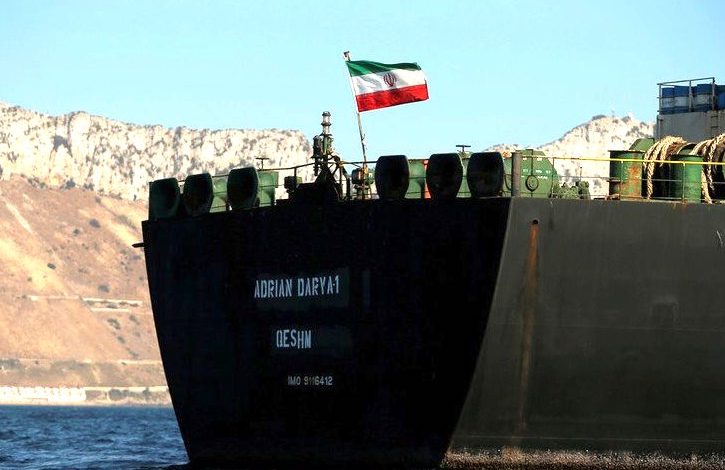
Iran seeks to nix dark shipping terminology
Iran is proposing amendments to a draft resolution on dark shipping at the upcoming meeting of the International Maritime Organization (IMO) Assembly.
Several concerns have been raised at IMO meetings about an increase in ship-to-ship (STS) transfers at sea, particularly instances of ships engaging in so-called dark operations to conceal their whereabouts. The issue was discussed before the IMO’s Legal Committee (LEG 110) in March, then again at the Marine Environment Protection Committee’s (MEPC 80) 80th session in July.
The risks highlighted included that such practices may be used to circumvent sanctions and high insurance costs. Also, from an environmental perspective, if there is a spill, there would be no pollution prevention and the responsible parties might evade liability under relevant liability and compensation regimes. LEG 110 was informed that a fleet of between 300 and 600 tankers, primarily comprised of older ships with poor maintenance, unclear ownership and a severe lack of insurance, was currently operated as a “dark fleet” or “shadow fleet” to circumvent sanctions and high insurance costs.
A document submitted to MEPC 80 raised awareness of these issues and proposed a draft Assembly resolution urging member states and all relevant stakeholders to promote actions to prevent illicit operations of “dark shipping” in the maritime sector.
During a lengthy discussion on the matter, shipping organisations pointed out that, while there should be no covert STS operations, differences between legitimate and illegitimate STS operations must be made. As a result, the terms “going dark” and “dark fleet” should be used with caution, as there may be legitimate operational reasons for AIS not operating properly or being turned off owing to security concerns. For example, pirates have exploited AIS signals in the past to attack tankers.
MEPC 80 then agreed to forward the draft resolution to the thirty-third session of the Assembly for further consideration with a view to finalisation and adoption.
The IMO’s highest governing body meets once every two years in regular sessions but may also meet in an extraordinary session if necessary. The Assembly’s 33rd session is scheduled from November 27 to December 6.
In the document submitted ahead of the meeting next week, Iran said that the proposed resolution “shows a clear deviation of IMO’s concentration from its function and merit, as it includes controversial concepts and terms that lack precise and absolute definitions acceptable to all member states or within international law, such as dark ship or illicit.”
The Middle Eastern state also noted that it does not believe STS operations would endanger maritime safety or result in pollution to the marine environment and that IMO’s focus should be on the technical standards governing such operations.
The document seen by Splash showed Iran “strongly demands” the revision of the proposed Assembly resolution and for the words “illicit” and “dark shipping” to be removed from the title of the draft resolution.
According to Iran, it should read: “Urging member states and all relevant stakeholders to promote actions to prevent ship-to-ship transfers of substandard shipping in the maritime sector.”
Meanwhile, amendments to the draft resolution, backed by the EU, the US, the UK, Japan and Intertanko, amongst others, have also been submitted to compensate for AIS being switched off for “ligitamate safety concern”. The word illegal is also now being used instead of the word illicit “in order to provide more certainty and clarity in language”.
The terminology for ships that are engaged in illegal operations for the purposes of circumventing sanctions, evading compliance with safety or environmental regulations, avoiding insurance costs or engaging in other illegal activities, has, however, been maintained.
“The terms ‘dark fleet’ and ‘shadow fleet’ have both been used widely in industry and media and in the context of this draft resolution are taken to mean one and the same,” the co-sponsors of the amended draft resolution said.